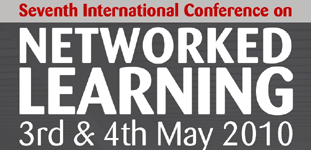

Podcasts for efficient learning?
Simon Heilesen
Roskilde University, Roskilde, Denmark
Abstract
Not many teachers openly question the value of podcasting in higher education. As yet, however, there is not much solid documentation that the use of podcasts has a measurable, beneficial effect on the academic performance of students. This poster reports on an extensive literature survey conducted in order to identify documented effects of the use of podcasts in university teaching. Such effects may be distinguished into A) perceived effects, B) effects on performance, and C) effects on teaching practise.
As to perceived effects, there are two important tendencies: 1) Students readily adopt audio and video recordings as supplementary study tools - but they do not change work routines much. 2) Students generally consider podcasts as helpful in improving the study environment. They provide help in catching up with classes missed, thus reducing stress. And they make possible a self-paced acquisition of information, allowing for repetition, reflection, and supplementary information gathering.
Studies reporting on measurable effects of podcast use (in terms of academic performance) mostly provide tentative and not entirely unanimous conclusions. Most likely, various derived effects seem to be at work, e.g. that repetition helps memorizing facts; or that the retention curve is improved when students review learning materials.
In terms of effects on teaching, it may be observed that podcasts turn conventional classroom teaching into a "blended learning" environment, breaking down barriers to adopting ICT in education. Also, it seems that the introduction of podcasts into a teaching environment serves as a challenge to accustomed teaching practices. Podcast use can be distinguished into 1) substitution (replacing most or all in-class lecturing with podcasts), a step commonly associated with rethinking the pedagogical approach entirely. 2) Supplements, such as visualizations of cases and practice situations, short presentations or dialogues on difficult subject matter, and feedback on assignments. 3) Creative use, generally meaning letting the students play the active part in documenting project activities, producing presentations for the benefit of their peers, etc.
In summary: There is convincing evidence that the introduction of podcasts in a learning environment has a general, if not actually measurable beneficial effect, both in terms of improving the study environment and in stimulating reflection on a experiments with teaching formats.
| About NLC | Welcome Messages| Acknowledgwments | Conference Proceedings| Keynote Speakers| Index of Presenting Authors| Contact |